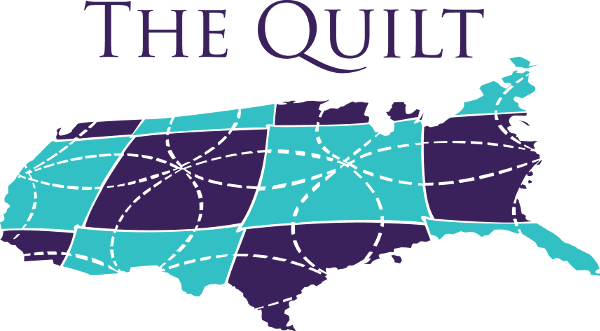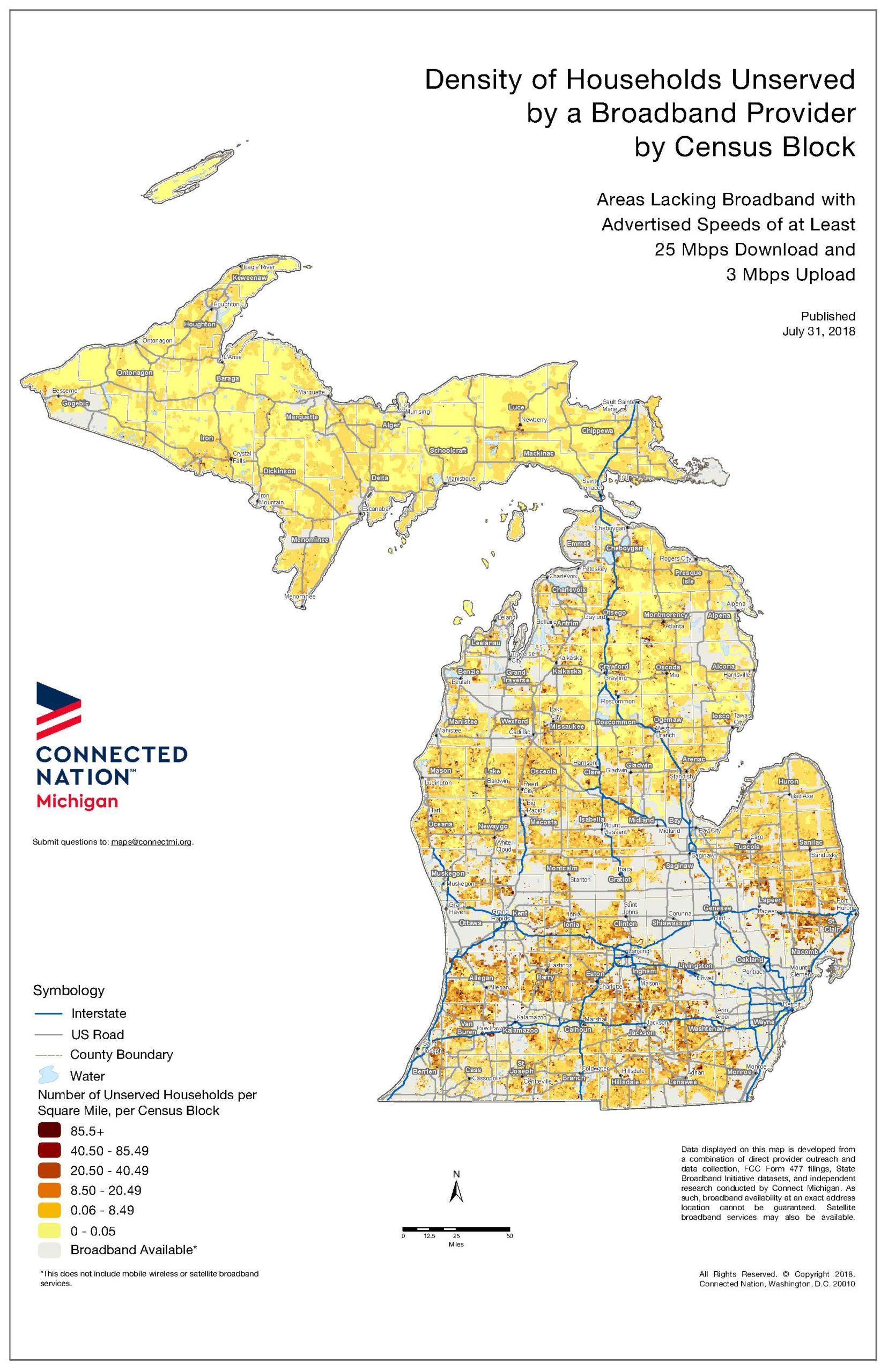Like many states, much of Michigan lacks access to broadband Internet. Research and Education Networks like Merit are uniquely positioned to catalyze unserved communities toward connectivity. Merit, in partnership with M-Lab and the Quello Center at Michigan State University, has developed a phased plan to address the digital divide within our state. Dubbed the “Michigan Moonshot,” Merit’s approach includes access and availability data collection, investigation and community education in regard to infrastructure investment and societal impact studies along the way.
Access to, and use of, the Internet has become an integral component of everyday life in the 21st century. Digital information has reshaped how individuals participate in nearly every dimension of society. It is imperative for communities to leverage broadband network access to eliminate the homework gap and for the benefit of education, telemedicine, public safety, and workforce development to maintain the quality of life.
According to the Wireless Innovation for Last Mile Access (WILMA) report, nearly 40% of rural America lacks access to broadband. Connectivity, even via wireless networks, requires access to a fiber optic network backbone. Low population densities make economic return on investment problematic for commercial providers. Some rural areas of Michigan house as few as 2-20 individuals per square mile. Often, a for-profit organization cannot earn enough revenue to justify the costs of building a fiber connection to rural communities.
A consistent challenge nationally is understanding where broadband is available. Current Federal Communications Commission (FCC) data collection methodology does not provide enough granularity for accurate measurement, and over-reliance on ISP providers’ information may present reporting challenges. For example, current FCC measurements are aggregated to the census block level (or higher), which could misrepresent the availability of broadband. These information gaps can be overcome by collecting on-the-ground consumer sourced data.
We propose a new approach for data collection that builds on collaborative network organizations (CNOs), often used in citizen science, to uniquely leverage (1) networks of stakeholders (i.e., Merit and other participating Research and Education Networks) to manage the sourcing of data from users across the nation; (2) a partnership with academic researchers that allows for data quality control (identifying and correcting problematic data) and sophisticated analyses using multiple sources and forms of data; (3) data collection through a user-friendly app. This will allow the flexible collection of data from multiple devices, fixed or mobile. This project will collect both speed test data and user provided household broadband access and availability data.
Merit is currently in the development and deployment stage of this data collection process. With accurate access and availability information, we can advance the ability of policymakers and academics to empirically analyze and influence effective policy to address pressing issues such as the homework gap and other problems associated with underserved populations.
Armed with an accurate picture of Michigan’s connectivity, barriers to broadband network deployment in rural communities could be reduced through a combination of techniques. Efforts to secure one-time funds to supplement network construction costs, the creation of community connectivity task force teams, the deployment of municipal network education initiatives and seeking planning grants, could present viable next steps to address the lack of connectivity in Michigan.

